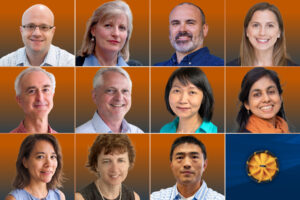AUSTIN, Texas—The Center for Strategic and Innovative Technologies (CSIT) has been established at The University of Texas at Austin to promote partnerships that could more rapidly move some of the university’s innovative technologies into becoming products that could benefit homeland security.
Dr. Steve Kornguth, director at CSIT, said the center intends to help meet emergent national strategic and security needs through innovative research and development efforts in biotechnology, biomedical engineering and neural mechanisms of behavior.
Kornguth said the success of the Center for Strategic and Innovative Technologies could provide a model for new efforts by The University of Texas to transition university-based technology to the marketplace.
One of the center’s first success stories, Kornguth said, is the recent award of a $950,000 grant from the National Institute of Allergy and Infectious Disease to initiate a partnership for technology that provides rapid scanning of biological samples for the presence of biological threat materials. The partnership is among Shelley Payne of the Department of Molecular Genetics and Microbiology in the university’s College of Natural Sciences, Kornguth and Dr. Robert Chin of the CSIT, and Dr. Kerry Oliver of Radix BioSolutions LTD in Georgetown, Texas.
Kornguth said the increase in new federal funding in the area of homeland security and the ability to transition technologies to users is directly attributable to the events of Sept. 11 and October 2001. He said the centers approach is based upon the recognition that national research and development, and industrial product development is a result of “push-pull events.”
“Federal research dollars to universities and federal laboratories provide the push element,” Kornguth said. “Product development and marketing provide the pull.” The University of Texas at Austin receives $300 million annually in research (about a fifth of this total in the areas broadly related to strategic and innovative technologies for defense and homeland security).
He said the capture of economic return by the university, from this investment, could be significant.
“There is a niche then for creation of an entity that will enhance university income from intellectual property developed at The University of Texas at Austin, and will increase economic return to the benefit of the school, the state and the nation,” Kornguth said. “The new center, together with the Office of Intellectual Property, will fill this niche by identifying emerging research and engineering in the area of strategic and innovative technologies, provide funds to researchers, assist in identifying disclosures for patent protection and develop partnerships with the private sector and federal laboratories. We try to partner with Texas industries whenever possible to benefit the state economy from the research advances made at The University of Texas at Austin.”
Kornguth said the center will develop partnerships in university laboratories and centers where there is resident excellence in research related to national security. The funds of such researchers will be augmented by funds brought to the university through the successful efforts of the CSIT.
For more information contact: Steve Kornguth, CSIT, 512-232-4485; Robert Chin, deputy director of CSIT, 512-232-4432; or Robert D. Meckel, Office of Public Affairs, 512-475-7847.



